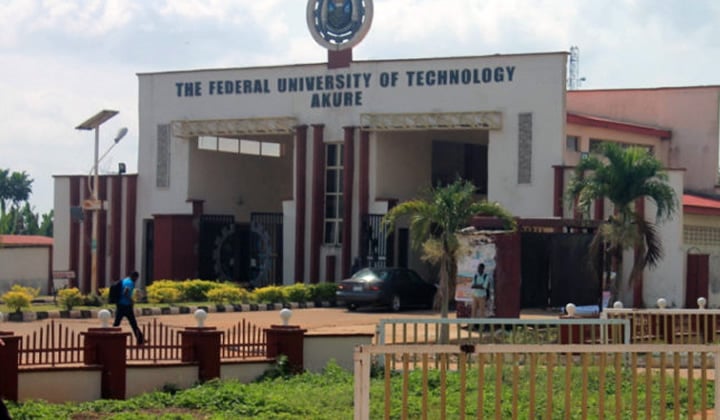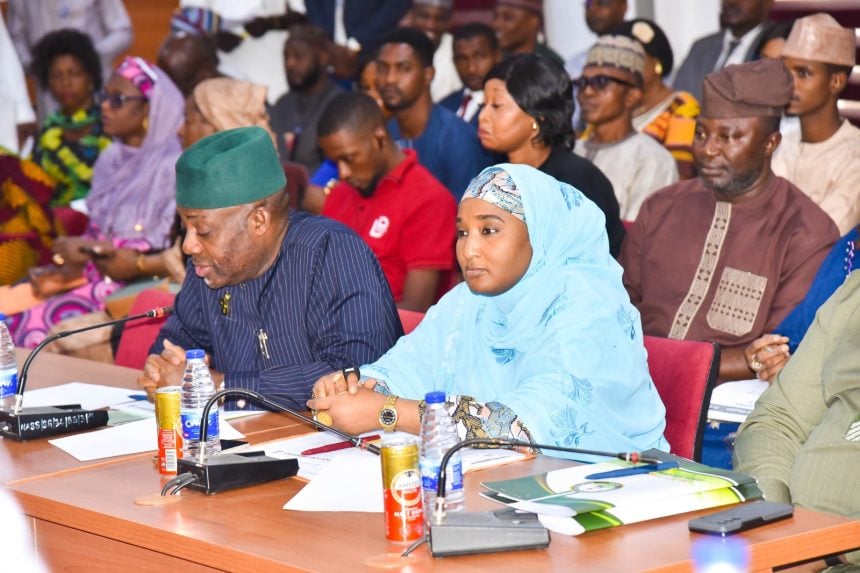The Senior Staff Association of Nigerian Universities (SSANU) chapter of the Federal University of Technology, Akure (FUTA) has officially joined the ongoing nationwide protest organized by non-academic university staff unions, demanding immediate government action on several unresolved issues affecting their welfare, salaries, and working conditions.
The protest, which began earlier this week across campuses nationwide, is part of a coordinated movement led by the Joint Action Committee (JAC) of both the SSANU and the Non-Academic Staff Union of Educational and Associated Institutions (NASU). It marks yet another chapter in the growing tension between the Federal Government and the university non-teaching workforce.
FUTA SSANU Joins National Action in Full Force
At the Federal University of Technology, Akure, members of SSANU trooped out in large numbers to express their frustration and dissatisfaction with what they described as years of government neglect and unfulfilled promises. The protest, which held at the university’s main gate and administrative areas, was peaceful but highly symbolic, as members carried placards with inscriptions such as “Pay Us Our Earned Allowances,” “End Discrimination in Salary Awards,” and “Implement Our Agreements Now.”
Speaking during the protest, the FUTA SSANU chairman emphasized that the union could no longer remain silent while its members suffered economic hardship caused by unpaid allowances, withheld wages, and government insensitivity. According to him, the nationwide protest was the only way to make the Federal Government listen and take meaningful action.
“Our members have been patient for too long. We are not just asking for what is new; we are asking for what has been promised and denied for years,” the union leader said.
Why SSANU and NASU Are Protesting Nationwide
The Joint Action Committee of SSANU and NASU had earlier directed all their chapters across universities to embark on a protest in response to the Federal Government’s continued failure to address several pressing issues.
Among their key grievances are:
| Key Demands | Details |
|---|---|
| Renegotiation of the 2009 FGN/NASU/SSANU Agreement | The unions insist that the government must reconvene negotiation meetings to update the obsolete agreement that governs their working terms and benefits. |
| Payment of Withheld Salaries and Arrears | SSANU and NASU members demand the payment of withheld salaries, including two months of unpaid arrears, which have caused severe financial hardship for many families. |
| Disparity in the ₦50 Billion Earned Allowances | The unions accuse the government of unfairly allocating earned allowances, claiming that academic staff received the bulk of the ₦50 billion while non-academic staff were left with crumbs. |
| Non-remittance of Third-Party Deductions | These include cooperative funds, union dues, and other statutory deductions owed to financial institutions and bodies, which the government allegedly withheld. |
| Unpaid Wage Award Arrears | SSANU and NASU members are also demanding the implementation and payment of the approved 25% and 35% wage awards which have not been fully reflected in their salaries. |
According to union sources, several letters and reminders have been sent to the Ministry of Education and the Office of the Accountant General of the Federation, but no substantial response has been received, prompting the nationwide action.
Protests Sweep Across Nigerian Campuses
The FUTA protest is part of a larger wave of demonstrations sweeping through Nigerian universities. Similar protests were reported at the University of Lagos (UNILAG), University of Ilorin, Ahmadu Bello University Zaria, University of Nigeria Nsukka (UNN), and several federal polytechnics.
At all venues, non-academic workers downed tools, chanting solidarity songs and calling for fair treatment and respect for their rights. The peaceful demonstrations aimed to draw attention to their plight while signaling that a total strike could follow if the government remains unresponsive.
In many universities, administrative offices and non-academic departments were partially shut down, disrupting routine services such as student record processing, maintenance, and internal communication.
SSANU, NASU Threaten to Escalate to Full Strike
Leaders of the Joint Action Committee have made it clear that the protests are only the first step in a broader plan to press home their demands. If the Federal Government continues to delay action, the unions have threatened to proceed to a full-scale industrial strike, which could cripple administrative and technical operations in all public universities.
The JAC, in a statement, described the protest as “a warning shot,” urging the government to act swiftly before the situation degenerates.
“We are not interested in shutting down the universities, but if the government pushes us to that point, we will have no choice. Enough is enough,” the national leadership of SSANU declared.
FUTA Community Reacts to the Protest
Students and members of the FUTA community expressed mixed reactions to the protest. While some students sympathized with the workers, acknowledging that their grievances were genuine, others expressed worry that prolonged protests or strikes could affect academic calendars and delay examinations.
A student who spoke on condition of anonymity said:
“We understand their struggle. Everyone deserves fair pay and respect. But at the same time, we hope it doesn’t lead to another long strike that will disrupt our studies again.”
Another student described the action as “a wake-up call to the government to fix the system before it collapses completely.”
Background: Longstanding Tension in the University System
This latest protest adds to the long list of industrial disputes between the Federal Government and university-based unions. In recent years, both SSANU and NASU have accused the government of treating them as second-class workers compared to academic staff under ASUU.
Their complaints have often centered on poor welfare, delayed salaries, and exclusion from key policy decisions. Previous strikes by non-academic unions have caused partial shutdowns of administrative operations, showing the crucial role these workers play in keeping universities running.
Observers note that the recurring disputes underline the urgent need for a holistic reform of Nigeria’s tertiary education funding and management system.
What’s Next for FUTA and Other Universities?
As of now, FUTA’s SSANU members have vowed to continue their peaceful demonstration until concrete steps are taken by the Federal Government. Union leaders insist that they are open to dialogue but will not call off the protest without tangible results.
If the government fails to respond within the coming weeks, the situation could escalate into a nationwide strike, potentially disrupting ongoing academic activities and administrative services across public universities.
The future of the protest—and its impact on the university system—now depends largely on how quickly the government moves to address the unions’ demands.
Conclusion
The participation of FUTA’s SSANU in the nationwide protest highlights the growing unrest within Nigeria’s higher education sector. It is a stark reminder that beyond the classrooms, university workers are also battling economic realities and institutional neglect.
While the protest remains peaceful for now, the underlying tension calls for urgent government intervention. Stakeholders and policymakers must act swiftly to prevent another full-blown crisis that could paralyze academic and administrative activities nationwide.
Until then, the FUTA protest stands as a strong voice in a growing movement demanding fairness, justice, and respect for all university workers across Nigeria.



